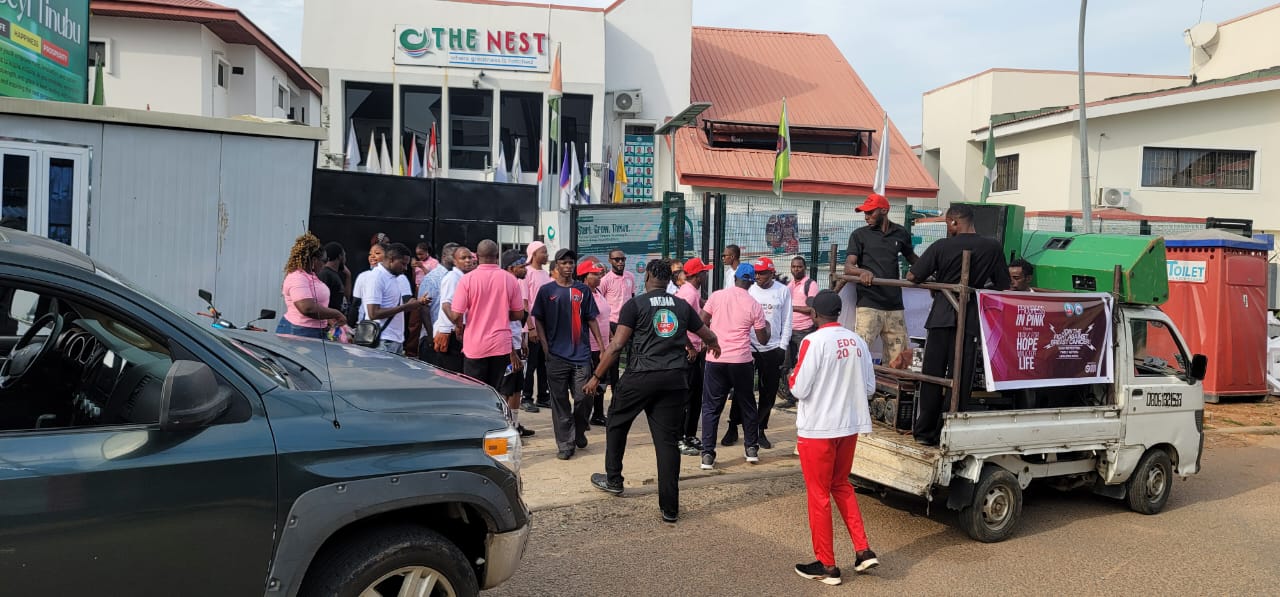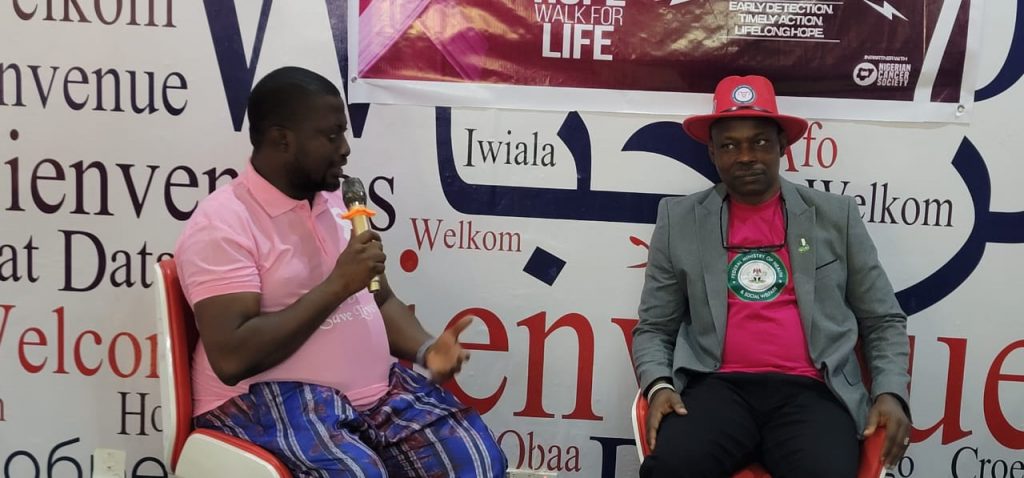Health
Food safety: Experts harp on ban of Highly Hazardous Pesticides

Joel Ajayi
Stakeholders in Nigeria’s agricultural sector have called for urgent action to stop the spread of Highly Hazardous Pesticides (HHPs) in Nigeria, citing risks to public health, environment and trade.
They made the call on Thursday at a news conference in Abuja, which had the theme: “Stop the Spread of Highly Hazardous Pesticides (HHPs).”
They harped on the need for coordinated efforts to prioritise food safety, health, transparency and accountability in agricultural policies and support programmes.
Oreoluwa Adelakun, Convener, The Alliance for Action on Pesticides in Nigeria (AAPN), said the organisation had partnered with other stakeholders in the sector to raise awareness about the hazards of pesticides.
She added that it had also sought to promote sustainable agriculture practices.
Adelakun emphasised the importance of safeguarding the nation’s health by regulating pesticide use via government agencies’ efforts thereby minimising the risks associated with pesticide use and promoting safer alternatives.
”With over 65% of active ingredients in pesticides used in Nigeria being toxic to humans and the environment, the need for stricter regulations cannot be overstated,” she said.
She said that AAPN’s efforts had led to the training of over 100,000 farmers on organic pest control methods, and they continued to advocate for policy changes to regulate pesticide use.
According to her, by banning and phasing out hazardous pesticides, Nigeria can reduce the risks of pesticide-related illnesses and deaths, protect the environment and promote sustainable agriculture practices.
Adelakun also urged the government to launch public awareness campaigns and take rigorous enforcement actions against violators.
“The use of HHPs in Nigeria has severe health and environmental implications.
“Pesticide poisoning is a significant public health concern, with an estimated 200,000 Nigerians dying yearly from food poisoning,” she said.
The AAPN convener called for immediate and coordinated actions to checkmate sale of banned and toxic pesticides on both open markets and online platforms, where they are easily accessible to anyone.
She called on agencies like the National Agency for Food and Drug Administration and Control (NAFDAC) and Federal Competition and Consumer Protection Commission (FCCPC) to clamp down on the sale and distribution of HHPs, especially online.
Adelakun said that this was to protect the Nigerian populace and its valuable agricultural sector.
Prof. Simon Irtwange, Co-Founder, AAPN, noted that some of these chemicals are still available for farmers to purchase which posed a critical concern.
He said that over 65% of the active ingredients used in the chemicals are highly hazardous and banned in many other countries.
“Nigeria currently uses approximately 23,400 metric tons of pesticides annually, with over 50% of registered formulations classified as hazardous.
“This systemic failure, compounded by weak regulation and a lack of farmer training, poses a severe threat to public safety and the environment,” he said.
Irtwange said the consequences of this unregulated pesticide use had devastating health effects ranging from acute poisoning to chronic issues like cancer and neurological damage.
He added that economically, Nigeria faced a staggering $362.5 million loss yearly due to the EU’s ban on its bean exports and a high rejection rate for other agricultural products because of pesticide residue.
On his part, Dr Farouk Rabiu-Mudi, the National President, All Farmers Association of Nigeria (AFAN), said that as Nigeria took steps to ensure food safety, it was essential for the government to continue working with stakeholders.
He said that government and stakeholders could work to promote sustainable agriculture practices and protect public health.
The AFAN president noted that by doing so, Nigeria could ensure a healthier and more sustainable food system for its citizens.
He also emphasised the importance of promoting safer alternatives such as bio-pesticides and organic fertilisers.
Rabiu-Mudi called for mandatory training and distribution oversight for organisations distributing pesticides.
Joyce Brown, the Director of programmes, Health of Mother Earth Foundation (HOMEF), noted that environmentally, these chemicals contaminated soil and water, harming ecosystems and diminishing land productivity.
She called on the government to take decisive action to protect public health and the environment by implementing and enforcing effective pesticide regulations.
“These pesticides are toxic and potentially harmful to human health and the environment, and there is a need for stricter regulations to prevent the spread of HHPs in Nigeria,” she said.
NAN reports that NAFDAC had earlier banned highly hazardous pesticides (HHPs) like Paraquat, Chlorpyrifos and Carbofuran.
These pesticides have been linked to various health problems, including organ failure, Parkinson’s Disease and child neurodevelopmental harm.
Health
APC Youth Leader, Health Minister, Others Champion “Going Pink Walk” for Breast Cancer Awareness in Abuja


Joel Ajayi
It was a vibrant gathering of energetic young men and women across the Federal Capital Territory (FCT) on Saturday in Abuja, as they joined the “Progress in Pink Walk”, a non-competitive awareness march organized by the All-Progressives Congress (APC) Youth Wing to mark Breast Cancer Awareness Month.
The event, themed “Walk for Hope, Walk for Life,” was commenced at The Nest — A Place Where Greatness is Hatched, an over 4 kilometres walk aimed at encouraging early detection, promoting timely medical intervention, and offering hope to those affected by breast cancer.
Leading the walk was the APC National Youth Leader, Dr. Dayo Israel, who has remained consistent in championing initiatives that promote youth empowerment, health consciousness, and community impact.
Over the years, Israel has spearheaded several programs designed to enhance the capacity and wellbeing of young Nigerians.
Globally, October is recognized as Breast Cancer Awareness Month — a period dedicated to increasing awareness, encouraging prevention, and supporting those battling the disease. The APC Youth Wing’s initiative aligns with this global campaign, demonstrating the party’s ongoing commitment to public health advocacy and youth-driven change.
Speaking after the walk, an elated Dr. Dayo Israel explained that the initiative was organized to create awareness among women, both young and old, on the importance of knowing their bodies and seeking medical attention early.
“We want women to know their breasts so well that if anything unusual happens, they act quickly.
“Cancer doesn’t occur overnight it develops over time. awareness, and early detection are key to saving lives,” he said.
He added that the walk also sought to promote fitness as a vital component of a healthy lifestyle and to encourage women to adopt positive habits that support their wellbeing and happiness.
In his remarks, the Minister of State for Health and Social Welfare, Dr. Iziaq Adekunle Salako commended the APC Youth Wing for taking proactive steps to raise awareness about a critical health concern.
“With this step you have taken today, more Nigerians will become aware of the dangers of late detection.
“Unfortunately, eight to nine out of ten breast cancer cases in Nigeria are detected late — a situation we must change through constant awareness and screening,” he said.
He emphasized the importance of prevention, urging Nigerians to take their health seriously through regular check-ups, healthy living, and avoidance of risk factors like smoking.
Also speaking, the President and CEO of the Nigerian Cancer Society, Prof. Abidemi Omonisi, noted that breast cancer remains one of the most prevalent forms of cancer in Nigeria, accounting for up to 40–50% of all cancer cases.
“Breast cancer remains a major public health challenge. Exercise plays a vital role not only in prevention but also in improving outcomes for people living with cancer and other non-communicable diseases such as diabetes and hypertension,” he said.
Prof. Omonisi stressed the need for a community-based response to cancer similar to the national efforts used to combat HIV/AIDS.
“We must involve everyone from schools and youth groups to community organizations to build resilience and eliminate the fear and stigma surrounding cancer,” he added.
He praised the APC Youth Wing for leading the charge, noting that young people, with their creativity and innovation, are uniquely positioned to drive impactful awareness campaigns both online and offline.
The “Progress in Pink Walk” concluded with participants pledging to continue spreading the message of early detection, regular screening, and healthy living underscoring that together, Nigerians can defeat breast cancer through awareness, unity, and action.
-

 Featured6 years ago
Featured6 years agoLampard Names New Chelsea Manager
-

 Featured6 years ago
Featured6 years agoFG To Extends Lockdown In FCT, Lagos Ogun states For 7days
-

 Featured6 years ago
Featured6 years agoChildren Custody: Court Adjourns Mike Ezuruonye, Wife’s Case To April 7
-

 Featured6 years ago
Featured6 years agoNYSC Dismisses Report Of DG’s Plan To Islamize Benue Orientation Camp
-

 Featured4 years ago
Featured4 years agoTransfer Saga: How Mikel Obi Refused to compensate me After I Linked Him Worth $4m Deal In Kuwait SC – Okafor
-
Sports3 years ago
TINUBU LAMBAST DELE MOMODU
-

 News10 months ago
News10 months agoZulu to Super Eagles B team, President Tinubu is happy with you
-
Featured6 years ago
Board urges FG to establish one-stop rehabilitation centres in 6 geopolitical zones
